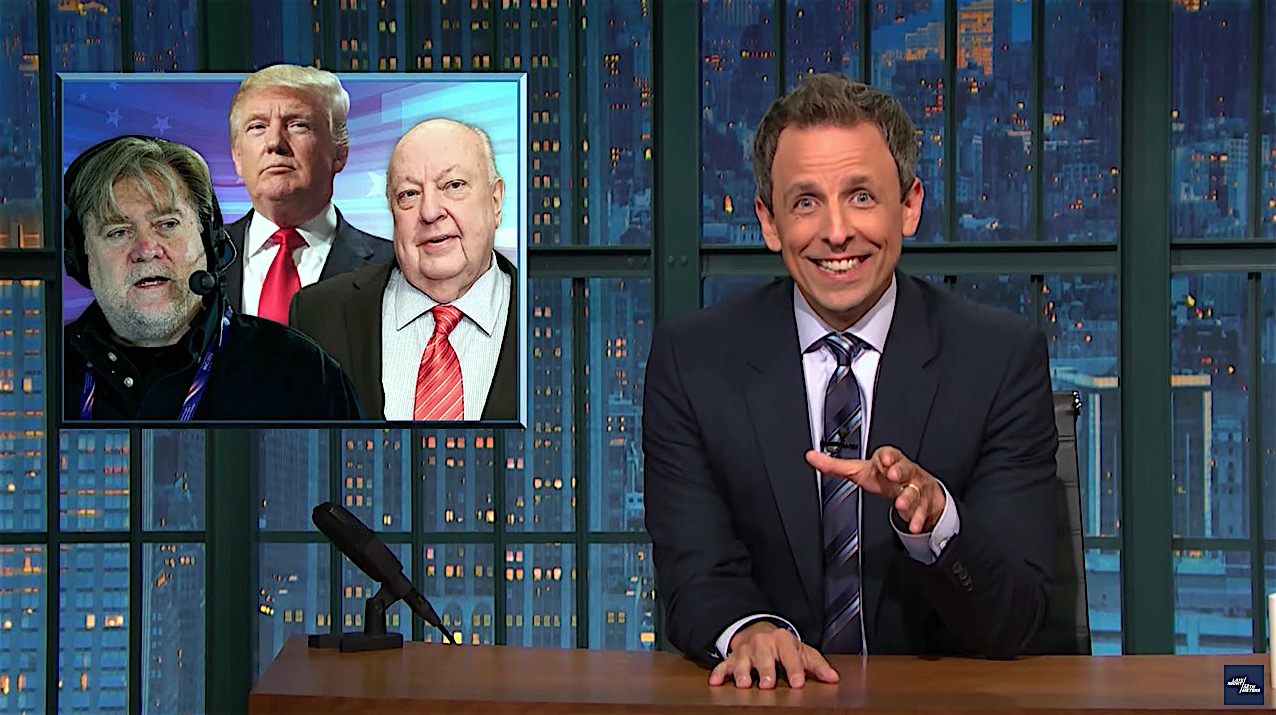Seth Meyers has bad news for anybody still waiting for that sweet, sweet Donald Trump pivot


A free daily email with the biggest news stories of the day – and the best features from TheWeek.com
You are now subscribed
Your newsletter sign-up was successful
Seth Meyers thinks he's figured out the 2016 presidential race, and he explained his theory on Monday's Late Night. "Donald Trump spends weeks saying inflammatory things that drive his poll numbers down, and then for a few days he acts relatively normal, and the media thinks he's ready to get serious," he said. "Well, it's happening again." Meyers briefly ran through Trump's greatest hits from the two weeks Late Night was off for the Olympics, ending with Trump's surprising expression of "regret" last week.
Meyers wasn't terribly impressed with Trump's vague, "hollow" apology, saying, "It's hard to apologize when the crowd gives you a five-second applause break for admitting you say the wrong thing." But Republicans were — "That's how low the bar is for Trump right now: Republicans are complimenting him for being 'mature.' They talk about their nominee the way people talk about a 5-year-old wearing a suit at a wedding" — and so was the political press. But the big tell that "the Trump 'pivot' the media is hungry for may never actually happen," Meyers said, is his new "no holds barred" campaign team. ("No holds barred?" Meyers asked. "I'm sorry, was Trump barring any holds before this?")
Watch below for Meyers' entire argument, plus his look at Trump's new senior advisers, "conspiracy theories about Hillary's health," and secret, audacious Plan C: "Just guilt people into voting for him." Peter Weber
The Week
Escape your echo chamber. Get the facts behind the news, plus analysis from multiple perspectives.

Sign up for The Week's Free Newsletters
From our morning news briefing to a weekly Good News Newsletter, get the best of The Week delivered directly to your inbox.
From our morning news briefing to a weekly Good News Newsletter, get the best of The Week delivered directly to your inbox.
A free daily email with the biggest news stories of the day – and the best features from TheWeek.com
Peter has worked as a news and culture writer and editor at The Week since the site's launch in 2008. He covers politics, world affairs, religion and cultural currents. His journalism career began as a copy editor at a financial newswire and has included editorial positions at The New York Times Magazine, Facts on File, and Oregon State University.
